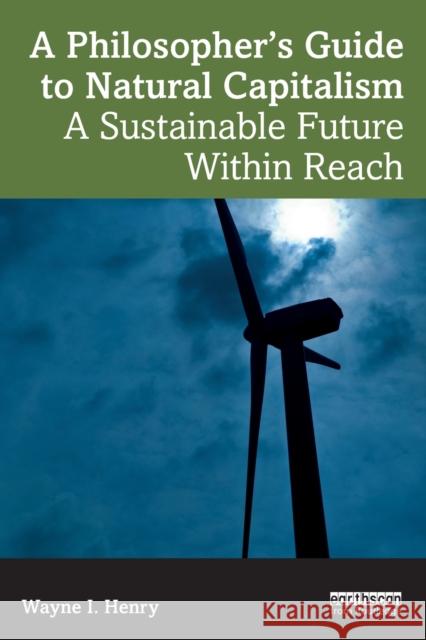A Philosopher's Guide to Natural Capitalism: A Sustainable Future Within Reach » książka
A Philosopher's Guide to Natural Capitalism: A Sustainable Future Within Reach
ISBN-13: 9781032483467 / Angielski
A Philosopher's Guide to Natural Capitalism: A Sustainable Future Within Reach
ISBN-13: 9781032483467 / Angielski
(netto: 195,86 VAT: 5%)
Najniższa cena z 30 dni: 186,33
ok. 16-18 dni roboczych.
Darmowa dostawa!
This book posits that a sustainable future is possible without abandoning Capitalism. In its present form as Consumer Capitalism, the organization of the global economy is clearly unsustainable.
This book posits that a sustainable future is possible without abandoning Capitalism. In its present form as Consumer Capitalism, the organization of the global economy is clearly unsustainable. But Capitalism is a malleable concept that has assumed a variety of forms since the 17th Century, and it can be altered as needed.
In Part I of this book, Wayne Henry sets out an economic model for a sustainable form of Capitalism, referred to in the literature as Natural Capitalism. In Part II, he abandons exposition in favour of rigorous philosophical analysis and critiques the older but still dominant narrative that underlies Classical Liberalism. The narrative will be reconstructed with great care and analyzed to understand why it has been so powerful and enduring, and, of course, why it is no longer appropriate for our present circumstances. In Part III, he investigates Classical Liberalism and globalized capitalism, the economic system it licenses, from a normative perspective. Finally, in the conclusion, Henry draws the threads of the discussion together in a way that emphasizes the differences between the two narratives, Classical Liberalism on the one hand, and the contemporary version of Progressive Liberalism that nurtures and supports Natural Capitalism on the other.
This book will be of interest to a broad range of scholars and curious laypersons interested in a clear and interdisciplinary presentation of the issues arising out of climate change, including corporate governance, social and environmental policy, declining social capital and the capacity of democratic institutions to deal effectively with sustainability. It will be particularly relevant for students and instructors of philosophy, history, economics, political science, social policy and environmental sociology.











